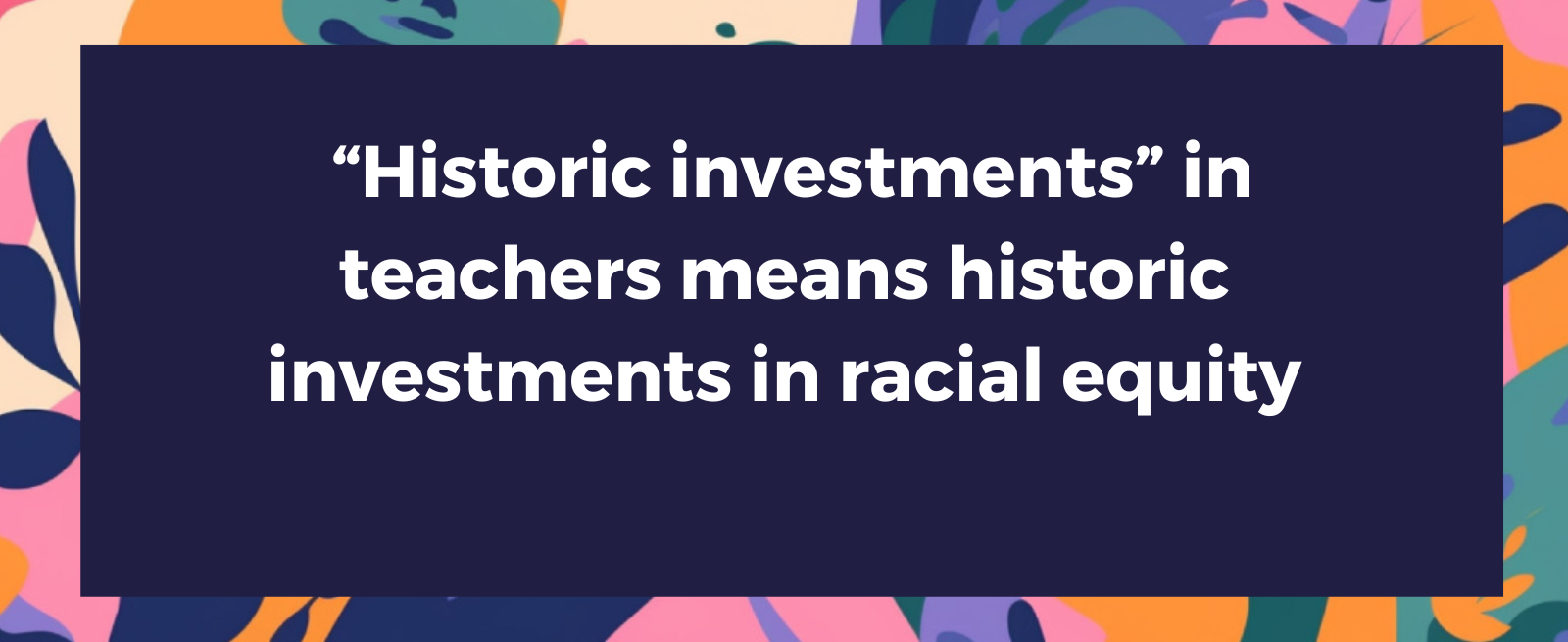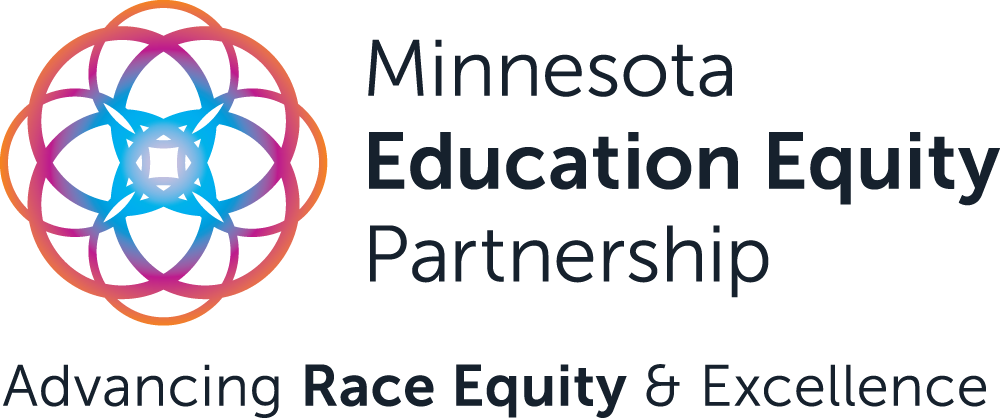
“Historic investments” in teachers should mean historic investments in racial equity
By Nan Yurecko; MnEEP Race Equity Training Center Coordinator
I love teachers —no, I mean I really love teachers, literally and figuratively. I am grateful for all the teachers who impacted my own educational experience and for all of the teachers I’ve been fortunate to work with over the years. I have family members who are teachers, I am married to a teacher, and I still consider myself a teacher.
As a parent, I also value my child’s teachers.
Last year in middle school, my daughter had to work in a group to complete a PowerPoint on the Women’s Suffrage Movement. Part of the expectations were that the information presented needed to include leaders of the movement. Since Susan B. Anthony and Elizabeth Cady Stanton are typically mentioned with the movement, my daughter included slides highlighting Francis Ellen Watkins Harper, Sojourner Truth, and Frederick Douglass to highlight how black leaders and abolitionists also contributed to the Women’s Suffrage Movement by working side by side with White women.
The evening before their presentation, without informing her, one of the group members deleted my daughter’s work because she “and her mom decided the slides were wrong.”
I share this story not because it impacted my daughter but because every student in the classroom was harmed when a peer, with one click of a delete button, got to erase history, and deny their access to multiple perspectives. This could have been any child, your child, simply trying to contribute content based on their experiences, values, needs, and strengths.
Yet, even more, unfortunate was that the teacher did not acknowledge and was not prepared to respond to this damaging experience. He was a good person and a good teacher, but simultaneously, he did not have the knowledge and the skills to address the incident.
Since May there has been much media coverage regarding the “historic investments” in Minnesota K-12 funding. While some of that $2.2 billion is designated toward fulfilling specific policy requirements, the package includes significant unmarked dollars that will be spent through local control by individual school districts.
Amid a state and national teacher shortage, with an even greater shortage of teachers of color in Minnesota (who make up only 7% of all licensed instructors), and year-to-year state funding that has not kept up with the costs of inflation, it seems only logical for school districts to consider using some of those funds to invest in teacher salaries.
However, equally important is the need to target investments in how to better serve People of Color and Indigenous (POCI) students who have been historically underserved and under-engaged by an education system ill-designed to serve them. Increased teacher pay does not equate to increased positive outcomes for students, especially POCI students. Minnesota has had one of the largest racial achievement gaps in the nation for decades and the racially disparate outcomes for POCI students can no longer be explained away by looking at other external factors such as poverty and the Covid-19 pandemic. It is imperative that we start taking a closer look at pedagogy.
Paying our Minnesota teachers respectful and professional salaries that keep up with costs of living is indeed important, as is demonstrating that we truly love them by holding them accountable and equipping them with the knowledge and skills they need to be successful with each child. During three decades as an educator, I never met a teacher who entered or continued in the profession without a desire to make an impact in the lives of our young people and in all of our futures.
As society changes and advances, so does teaching and learning. Currently, our children can Google the answer to just about any homework problem and artificial intelligence apps can write essays and answer test questions for them. Teachers are no longer the keepers of knowledge and must shift to be the nurturers of self-actualization and the facilitators of culturally VALIDATING pedagogy, which requires us to honestly reexamine our environment, instruction, and curriculum.
A truly “historic investment” would acknowledge our changing societal conditions and provide teachers with vigorous professional learning opportunities that support their success in culturally validating and meeting each child’s needs while eliminating the persistent underservicing of our POCI students.
A truly “historic investment” would increase teacher salaries while also holding them accountable for delivering positive student outcomes.
“Historic” would empower school district bargaining negotiating agreements that don’t require a forced choice between each child and those who serve them. It’s time to imagine a new way so that both our POCI students and our Minnesota educators can benefit—now that would be historic and radical love!

